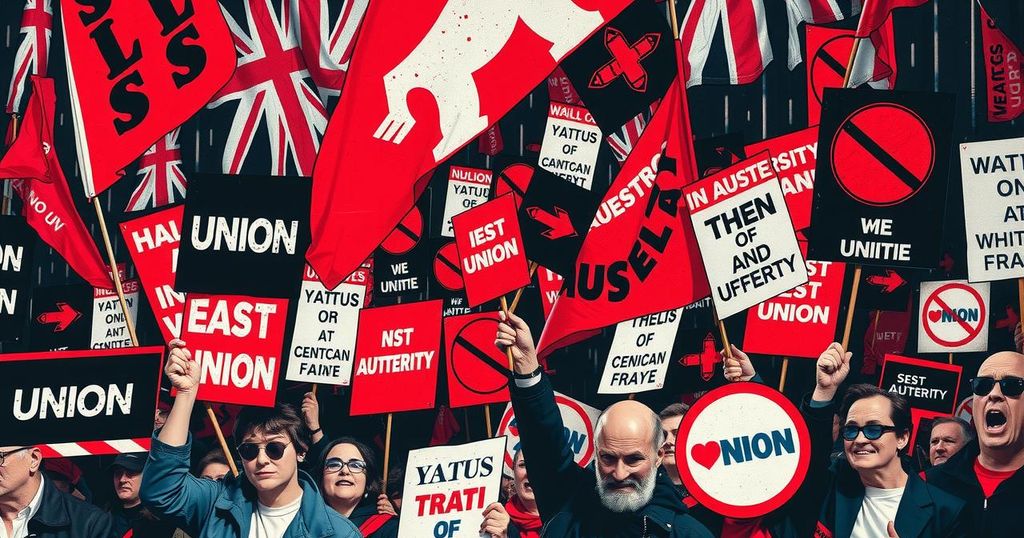President Javier Milei asserts that inflation will end by mid-2024 while unions protest against austerity measures. His administration has cut public spending but faces growing dissent among workers as economic inequality rises. Analysts caution about the precarious social situation in Argentina due to these policies.
President Javier Milei declared his government as possibly the best in Argentina’s history, stating that inflation will be eradicated by mid-2024. However, his statements came with significant union unrest simmering in the background, as labor groups reacted strongly to austerity measures implemented to tackle rampant pricing issues.
Milei emphasized in a Wednesday speech at the EXPO EFI 2025 event in Buenos Aires that “inflation has its sell-by date for the middle of next year and now is the time to think of growth.” He stressed that while the emergency phase is over, challenges remain. He also proclaimed a partial removal of currency and capital controls that have hampered Argentina’s economy since 2019.
Referring to the controls, known locally as the ‘cepo’, he argued they restrict citizens’ ability to save and affect future economic conditions. Additionally, he proudly shared news of a US$20 billion agreement with the International Monetary Fund (IMF), dismissing his critics with harsh language.
However, union leaders organized a protest just hours after Milei’s remarks. Thousands took to the streets in a mostly peaceful demonstration ahead of Labour Day, voicing opposition against austerity – though it ended with 14 arrests. Union banners and slogans called for an end to austerity, echoing the CGT (Confederación General del Trabajo) complaints regarding the government’s indifference to workers’ struggles amid cuts to public spending.
Following the protest, the transport union UTA announced a bus strike due to failed negotiations with the government. Officials imposed a limit on wage negotiations to 1 percent per month to help control inflation, which spiked to 3.7 percent in March. In addition to the arrests, nearly 30 buses involved in the protest were detained for violations.
At the rally, Father Lorenzo ‘Toto’ de Vedia shared support from clergy working in impoverished neighborhoods, condemning low wages and job scarcity. He pointedly remarked that the gap left by the state is being exploited by narcotics traffickers. Protesters expressed their exhaustion with financial struggles, with one cleaning lady stating, “Nobody can reach the end of the month.”
Since taking over in December 2023, Milei’s administration has reduced public spending by 4.7 percent of GDP, aiming to lower annual inflation from a staggering 211 percent in 2023 to 118 percent this year. Monthly inflation rates currently fluctuate between 2 and 4 percent. Interestingly, during his packed speech, Milei overlooked the protests and only mentioned celebrating a significant reduction in government size.
Analysts like Artemio López have pointed out that the social fabric in Argentina is under serious threat, noting, “The distribution of income is the worst in the last 20 years.” That same Wednesday, pensioner groups protested outside Congress, adding to a growing list of dissenting voices against federal policies. Local law enforcement was on hand to ensure compliance with measures aimed at controlling public demonstrations.
In summary, President Javier Milei’s bold promises to eradicate inflation coincided with mounting union discontent over austerity measures. His administration has implemented significant spending cuts while simultaneously maintaining their fiscal stance. Despite the pressure from labor groups and concerns over economic inequality, Milei remains steadfast in his approach, but observers warn of critical socio-economic repercussions.
Original Source: www.batimes.com.ar






